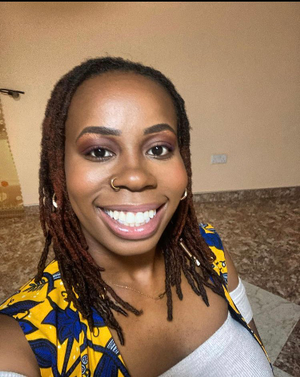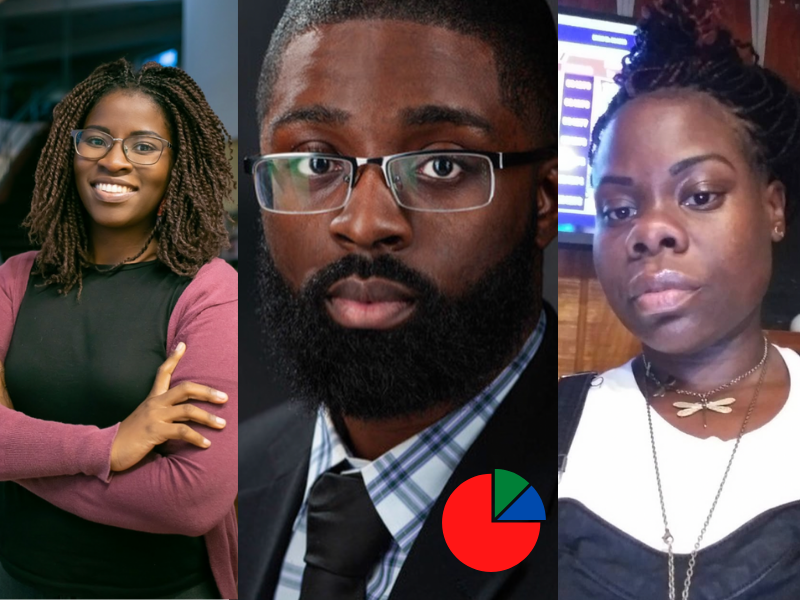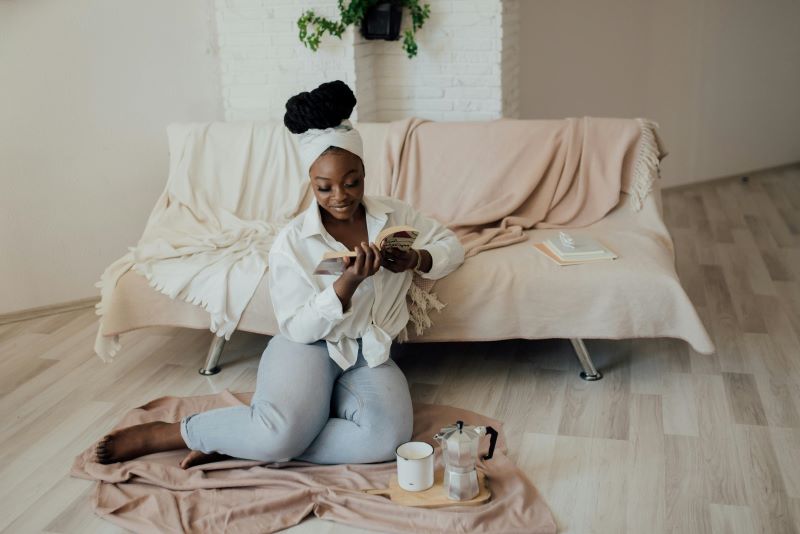‘Understanding COVID-19 Vaccine Hesitancy’ is an article series that uncovers causes of and replicable solutions to vaccine distrust among Black psyches. In the first part of the series, FunTimes spoke to health professionals and historians to explore the historical and cultural impacts of COVID-19 vaccine hesitancy among African-American and Afro-Caribbean communities. In the second part of the series, we explored strategies employed by the Black Doctors COVID-19 Consortium to provide healthcare access to underserved Black communities. In the third and final part of the series, FunTimes surveys communities in Philadelphia and other parts of the United States to discuss their COVID-19 vaccination experiences and opinions.
As of February 7th, 2022, 79.2% of Philadelphians have been fully vaccinated, as reported by the City of Philadelphia. Booster shots are recommended for the population. Although an overwhelming percentage of the population has been vaccinated, some of the general public still have concerns. To gauge motivations behind COVID-19 vaccination concerns, FunTimes collated quantitative data, through organizing a survey, and qualitative data, by coordinating 3 interviews. In a survey of 33 residents in 4 counties of the Greater Philadelphia Region, respondents shared their opinions on the COVID-19 vaccine. Before delving into the respondent’s survey answers, it may be worthwhile to look at the respondents’ demographics:

Most respondents were from Philadelphia County. The second most number of responses came from Delaware County, followed by Bucks County and Montgomery County. A little more than half of the respondents were Caucasian, and 32% were Black or African, followed by American Indian, Asian, and mixed respondents.
Females made up the majority of respondents. More than half of our respondents were ages 56+. The least populous of the respondents were ages 18-25.
Here are the respondent’s survey answers:

The majority of respondents received the COVID-19 vaccine. A Philadelphia resident who did not get the vaccine downplayed the disease’s impact and said: “I felt confident that I would be fine when I got COVID, and I preferred natural immunity. When I did get COVID, I only had a headache for a day.” Another respondent said: “Psychosis and the prevalence of options for medical treatment is in part responsible for some arguments against the vaccines.”
The majority of respondents see the COVID-19 vaccine as safe. A small minority believe it is not safe. Some Philadelphians noted they did not receive the vaccine due to a fear of side effects, and one noted their doctor said it would not be necessary. Some people are not recommended to receive the COVID-19 vaccine because of autoimmune diseases or allergies to some vaccines.
A respondent who supported the vaccine stated: “I have lost patience with anti-lifers. Their hesitancy restricts my freedom to work, plan, and enjoy life. It is time to mandate vaccinations just like we do for other vaccinations to attend school, etc.” Another respondent believed in having a choice whether to receive the vaccine and stated: “Vaccine mandates are authoritarian/totalitarian. Vaccines do not equal health!”
The Center for Disease Control (CDC) reported that potential side effects of COVID-19 vaccinations include fatigue, soreness at the site of vaccination, tiredness, headache, muscle pain, nausea, and fever, and that symptoms should stop in a couple of days. The CDC also says that allergic reactions to COVID-19 vaccinations are possible but rare. In discussing motivations for getting the vaccine, one respondent said: “I’d like to get back to getting a job. I got laid off on the day the quarantine was announced. I’m vaccinated to get out there again. The world is stuck! It really sucks.” Another said: “While side effects are possible with any medication or vaccine, the risks associated with COVID-19 are greater.”
The majority of respondents said the vaccine has been accepted in their communities. However, a quarter of respondents were unsure, and a tenth said that it was not. The majority of respondents were also extremely likely to recommend others to get a COVID-19 vaccine.
The general public, even those who have accepted the vaccine, still have vaccine-related inquiries. One respondent wondered: “Why do fully vaccinated people still wear a mask?” “What’s the difference between taking a flu shot as opposed to a booster shot? If one takes a flu shot should a booster shot also be taken?” Another Philadelphian raised the following concern about what they perceived to be a lack of transparency about potential harmful effects of the vaccine: “Adverse effects need to be publicized, not censored.” In addition to learning more about the disease and the nature of the vaccine itself, it may be helpful for the public to be more informed about the side effects of COVID-19 vaccines for better peace of mind.
Some COVID-19 vaccination opinions had peculiar demographic relations. Respondents who have not received the vaccine and are most likely not to receive the vaccine have been from Bucks County and Philadelphia County. The respondents who have not received the vaccine, and did not fully think the vaccine was safe were mostly American Indian/Alaskan or White. Most of the people who did not receive the vaccine are retired or not working and between the ages of 36-45, and 56+.
For a more well-rounded survey, in addition to the aforementioned quantitative data collated for this project, FunTimes included qualitative data by interviewing people of the African diaspora about their vaccination experiences.

( Peter Wang-Ju Jeffy, Ph.D. Candidate of Education )
Peter Wang-Ju Jeffy, a Ph.D. Candidate of Education, who received the Pfizer vaccine, discusses hesitations about being vaccinated: “I did not have any hesitations about being vaccinated. I wanted to take care of myself and my family. I didn’t want to be responsible for anything getting to my family.” In describing his experience being vaccinated, Peter says: “I had no side effects, no fatigue, no dizziness, no sickness. I got the shot and have been fine ever since.”
Peter gives advice to communities who may be hesitant to vaccinate: “If you’re hesitant, talk to your primary care provider. If not, do your own personal research and think about the people in your life. If you don’t think it’s necessary to get it but you will be around people who are susceptible to getting it, I would consider getting the vaccine. People should continue to be safe and not take the pandemic too lightly. People should be safe and preventative for people and their families.”

( Photo by Kampus Production from Pexels )
Akosua Thompson, a Master’s Candidate who received the Pfizer vaccine, describes her hesitations about being vaccinated and how she overcame them: “I hesitated a lot before even considering to take the vaccine. The news was not helping either. It was like we were getting conflicting messages every day. I understand this was a novel experience and everyone was sort of learning as they went, but still, it could have been handled better. In the end, I actually got the vaccine because I was living with extended family and they had all gotten it so I didn’t want to be the only one, especially since it was not my own home.”
In describing her vaccination experience and side effects, Akosua says: “For side effects, after the first dose my arm (the area that was injected) hurt for about a day and half. I couldn’t lift my arm all the way up, but that was to be expected as I have gotten these side effects after other vaccines too. The other side effects were that I got chills in the evening, even though my room was about 76 degrees F, and I had a headache.
After the second dose, I had the same pain in my arm as before. I couldn’t lift it up. I had to stay home and miss work the next day because I felt weak and sluggish, and quite sick to be honest, but I was better the day after (two days after the 2nd dose).”
Akosua tells of the reason why she doesn’t regret being vaccinated: “I feel like by vaccinating I have protected not only myself but people around me. I always go back to the fact that this isn’t the first vaccine I’ve had, and even with the other ones I didn’t know what the vaccines were and what they did. All that I knew was that I needed them. With this vaccine, at least I have some knowledge on the research behind it, and more importantly that it’s saving lives. So I just have to do my part and also give science the opportunity to do it’s part.”

( Danien Davis, a behavioral health professional )
Danien Davis, a behavioral health professional who received the Pfizer vaccine, recounts her initial hesitation about being vaccinated and what led her to vaccinate: “I don’t even get the flu shot so for me to get the vaccine it was like it’s never gonna happen. I got vaccinated because my job was offering a bonus and they required me to get the vaccine because I work in the healthcare field. I probably wouldn’t have gotten it, but I do like to travel so that would require you to get it. I got it for the cash bonus, for traveling purposes and to be safe in the house with kids in the home”
In describing why she decided to go for the Pfizer vaccine, Danien says: “I didn’t hear any bad side effects that were too bad about the Pfizer, and I knew people who had gotten that specific vaccine, like my sister who is a nurse, and my mom. I heard Johnson & Johnson was not too good. Moderna would have been my second choice if Pfizer was unavailable but Pfizer was number one for me.”
Danien notes the aftermath of being vaccinated: “I didn’t have any side effects from the vaccine luckily, only that my arm hurt the second time. I was up and driving, on the go. I don’t regret being vaccinated because I didn’t have any side effects.”
In discussing her opinion on booster shots and the Omicron variant, Danien says: “I think it’s just another thing to add on to the list for you to get more shots. I will not be getting the third booster shot. You will only get two shots out of me and that is it. I just feel like if it’s my time to go it’s my time to go. I got the two booster shots. I won’t keep getting shots, especially since I don’t even know what I’m being injected with. People who have been getting the booster shots have been dying.”
Through our surveys, it was discovered that respondents and interviewees expressed skewed COVID-19 related vaccine opinions. Those in favor of the vaccine noted the vaccine would protect their family, and allow people to continue their lives normally and access resources such as employment. Respondents who are not in favor of the vaccine expressed comments that relate to fear of the vaccine’s side effects, the belief of natural immunity, the continuous booster shots, the idea of pro-choice and lack of knowledge about the content of the vaccines. In reading the ‘Understanding COVID-19 Vaccine Hesitancy’ series, a vaccine awareness campaign, it is our hope to inspire communities to learn more about becoming vaccinated, energize healthcare workers of color to play a more active role in creating awareness and protection for vulnerable communities, and encourage conversation around vaccination hesitancy to increase vaccination, reduce hospitalization and potentially save lives.
What is your opinion or experience regarding COVID-19 vaccines? Comment below!
Works Cited
https://www.phila.gov/programs/coronavirus-disease-2019-covid-19/data/vaccine
This article has been made possible by the Independence Public Media Foundation.

This article is made in collaboration with Broke in Philly.


Nana Ama Addo is a writer, multimedia strategist, film director, and storytelling artist. She graduated with a BA in Africana Studies from the College of Wooster, and has studied at the University of Ghana and Kwame Nkrumah University of Science and Technology. Nana Ama tells stories of entrepreneurship and Ghana repatriation at her brand, Asiedua’s Imprint ( www.asieduasimprint.com ).
Data Compilation by:

Alissa Yamazaki is a web developer who helped launch FunTimes Magazine from print to online publication. She has a background in Medicine (University of Debrecen in Hungary) and Human Biology (BA, Brown University). In her spare time, Alissa enjoys creating new web applications and drawing comics.

Uju Nwagu is a social media manager and content creator at FunTimes Magazine. She is also in charge of creating comics along with producing videos and other materials used for content marketing. Uju currently resides in Lagos, Nigeria. She has a Master’s degree in Human Nutrition from the University of Ibadan. Her passion is music. She is a faithful chorister, belonging to a few choral groups (her alumni group inclusive).You can connect with her on Instagram @juby_lindas.





